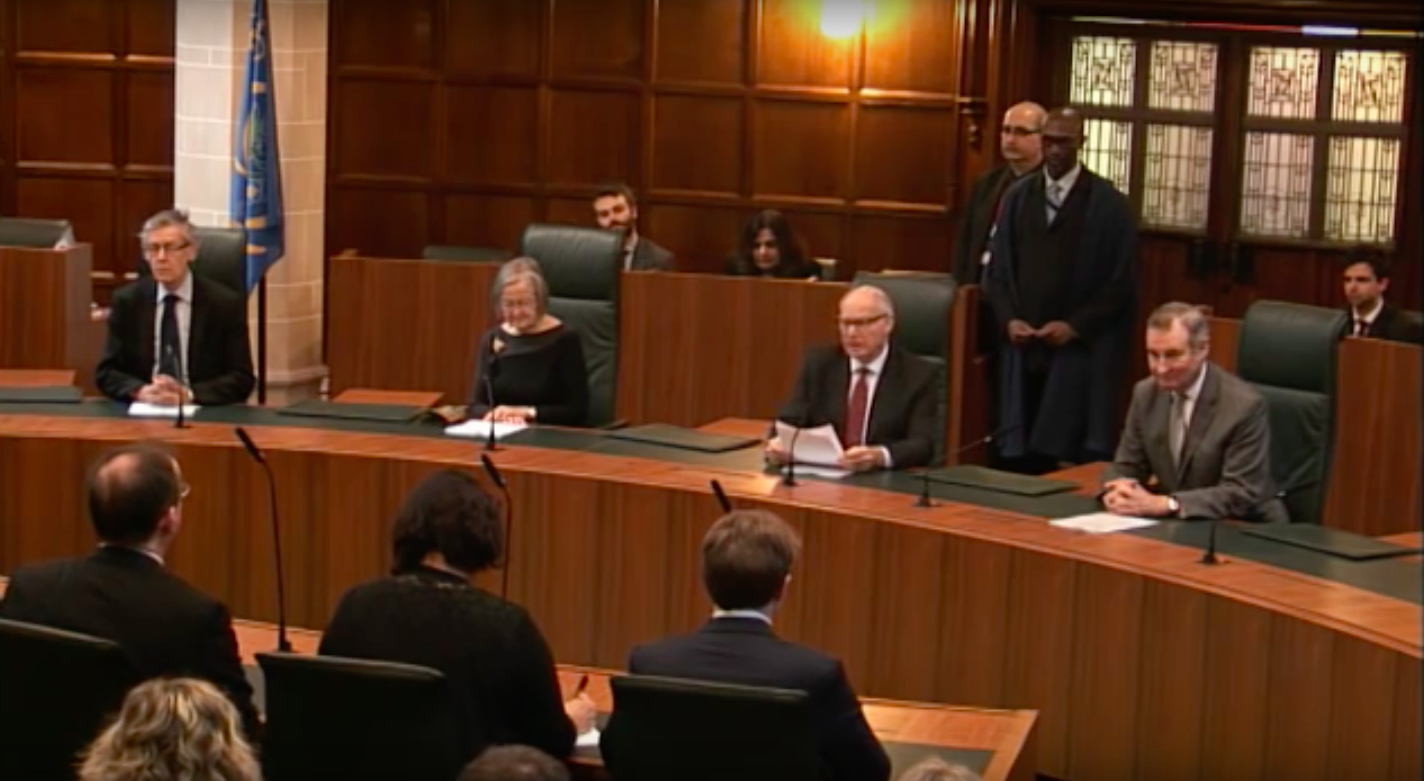In one of the most powerful reversals in English legal history, the Supreme Court ruled yesterday that a controversial part of the law applied to those who assist or encourage others to commit crimes had been made in “error”. The law of “joint enterprise” has been regularly used to convict gang members on the periphery of crimes. It has been greatly criticised, including by Parliament and campaigners who say it over-criminises young black men.
Hearing the case of Ameen Jogee, who was jailed for the murder of a former police officer, the Supreme Court Judges unanimously overturned the controversial law which has been applied for over 30 years.
Made to audible gasps from those in the room (watch the video below from 7:20) the Justices’ ruling will affect those accused or convicted of taking part in violent crimes up and down the country, and could result in hundreds of new appeals. Our very own Adam Wagner, led by Felicity Gerry QC, represented Ameen Jogee.
What happened?
Ameen Jogee and Mohammed Hirsi spent an evening together, drinking and taking drugs. They arrived at the house of Paul Fyfe, who was not home. His girlfriend, Naomi Reid, told them to leave as she was expecting Paul to return shortly. The men said they were not scared of him and would “sort him out”.
After Paul Fyfe returned there was an angry confrontation between him and Mohammed Hirsi inside the house, which ended in Hirsi taking a knife from the kitchen and stabbing Fyfe in the chest. Tragically, Fyfe died of his wounds. Hirsi was without doubt guilty of murder.
Based on this, was Jogee guilty of murder?
What the law said before
In English law, Hirsi is called the “principal”: he actually did the stabbing. Jogee, by encouraging Hirsi, is called the “secondary party”.
As a general rule, if the principal and the secondary party both set about committing a crime together (a “joint enterprise”), they are both equally guilty of it. So if Hirsi and Jogee had both set out to kill Fyfe, there would be no question that Jogee was also guilty of his murder, since by shouting at Hirsi to “do something” to Fyfe he was knowingly encouraging Hirsi to kill. The judges today were not disputing this basic rule.
However, if both men only set out to threaten or hurt Fyfe, but not to kill him, what happens if one of those men ends up killing him? Is the other one (Jogee) guilty of his murder?
Based on two cases decided 30 years ago, our law answered yes: even if Jogee did not intend for Hirsi to commit murder, Jogee was guilty of murder if he foresaw that Hirsi might commit murder as a result of his encouragement to “do something”.
What is the law now?
Jogee appealed all the way up to the Supreme Court, the UK’s highest court. The judges concluded that foreseeing that a crime or death might happen was not “automatic authorisation” of a crime: the person must also intend to assist in or encourage the crime.
In other words, Jogee was only guilty of murder if he intended to encourage Hirsi to kill Fyfe, not just if he foresaw that Hirsi might do it.
The form of joint enterprise which has been overturned has been very regularly applied by the courts, and not just in murder cases, so the importance of the decision cannot be underestimated . As Felicity Gerry QC, the lead representative for Ameen Jogee, put it, the previous law had been used to “scoop up” people who were on the peripheries of crimes.
Does this mean Ameen Jogee is innocent?
Not necessarily. The judges considered that on the facts found by the jury, he was guilty of at least manslaughter, and that there was evidence on which he may still be found guilty of murder. The main point of the appeal was to challenge the law that had made it too easy for him, and many others, to be convicted of assisting in crimes that they had not intended another person to commit. They will decide later whether Jogee’s verdict will be substituted with manslaughter or if he will be sent for a retrial (at which he could be found innocent).
Hot off the press comment from barristers @felicitygerry & @AdamWagner1 who represented Ameen Jogee #jointenterprise pic.twitter.com/hlrDCQQlBc
— Miranda Grell (@MirandaGrell) February 18, 2016
More reading:
– Supreme Court’s website for the judgment and press summary







